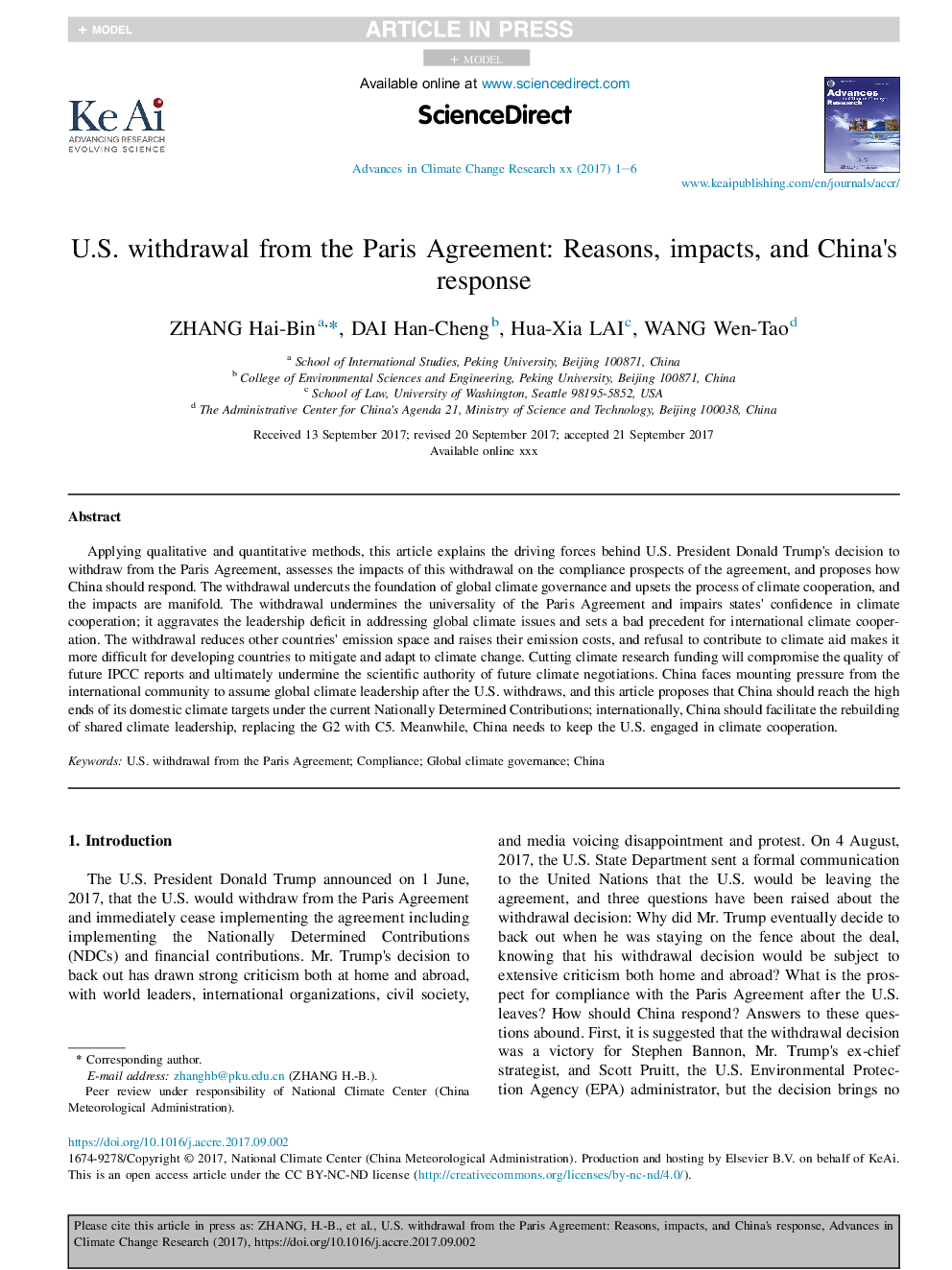ترجمه فارسی عنوان مقاله
خروج ایالات متحده از توافقنامه پاریس: دلایل، تأثیرات و واکنش چین
عنوان انگلیسی
U.S. withdrawal from the Paris Agreement: Reasons, impacts, and China's response
| کد مقاله | سال انتشار | تعداد صفحات مقاله انگلیسی |
|---|---|---|
| 103886 | 2017 | 6 صفحه PDF |
منبع

Publisher : Elsevier - Science Direct (الزویر - ساینس دایرکت)
Journal : Advances in Climate Change Research, Volume 8, Issue 4, December 2017, Pages 220-225
ترجمه کلمات کلیدی
خروج ایالات متحده از توافقنامه پاریس، انطباق، حکومت جهانی آب و هوا، چین،
کلمات کلیدی انگلیسی
U.S. withdrawal from the Paris Agreement; Compliance; Global climate governance; China;

